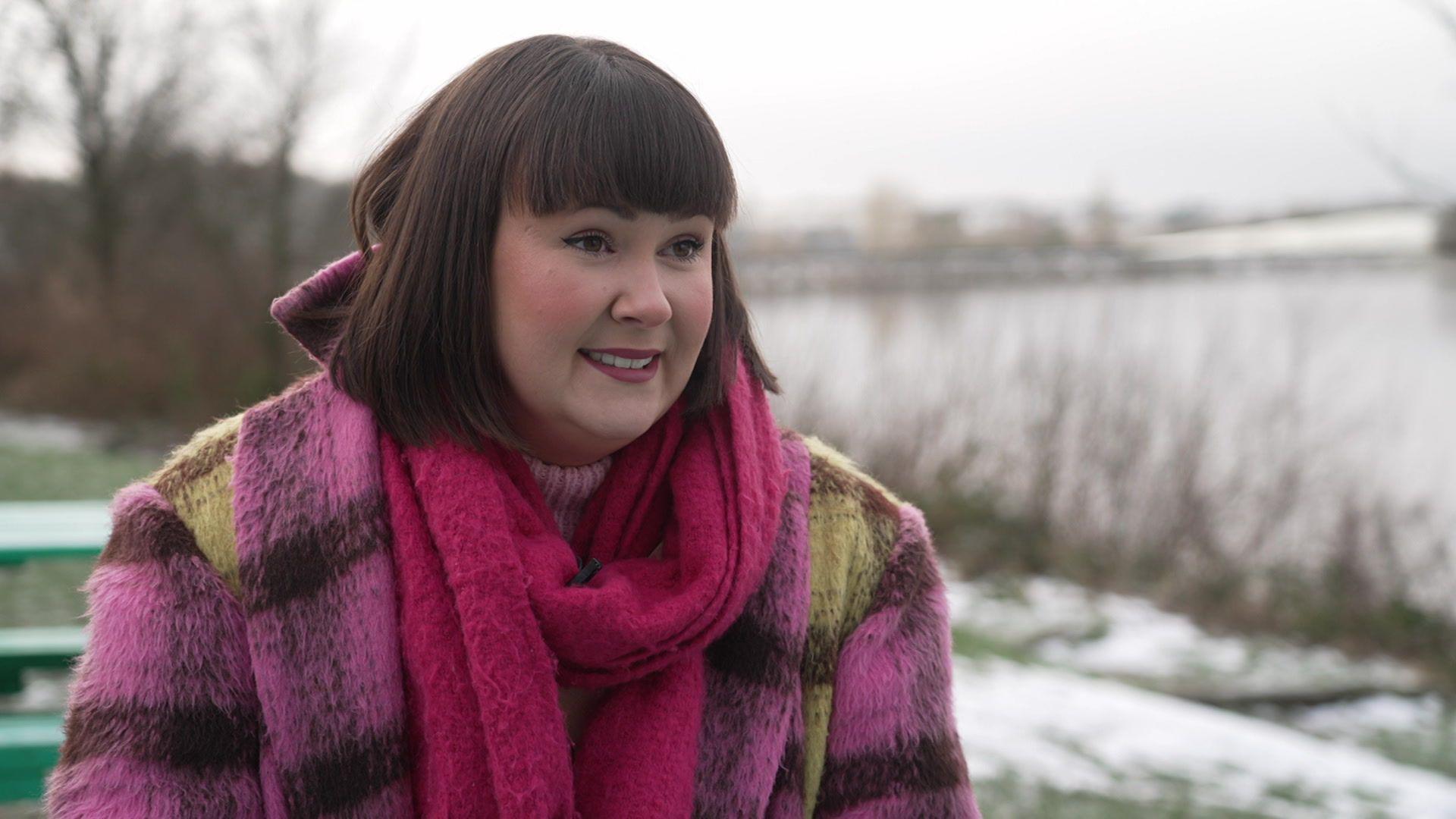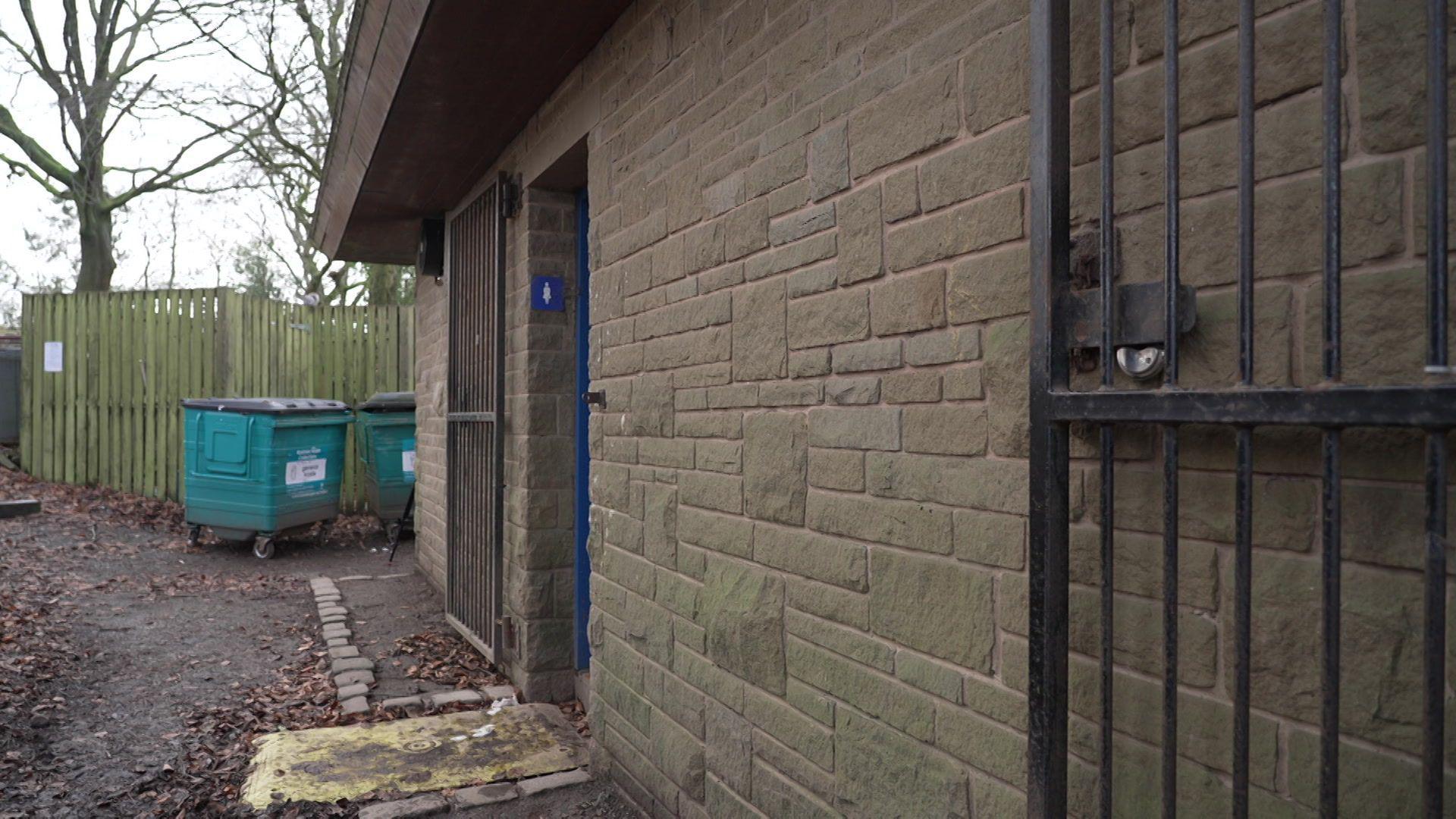'My public toilet anxiety left me trapped at home'

Lucy Smith-Butler talks about her experiences of living with a stoma bag on her social media channels
- Published
A woman who said she feared leaving her home for several weeks because she was so anxious about whether she would find a public toilet is calling for change.
Lucy Smith-Butler, from Rochdale in Greater Manchester, was diagnosed with ulcerative colitis at the age of 17.
Symptoms include stomach pain and having to rush to the toilet urgently and often.
The 25-year-old said it would "make people's lives easier" if there were better access to public toilets and cleaner facilities.
Rochdale Borough Council said there were public toilet facilities at 19 of its parks and cemeteries, plus 17 public toilets within libraries and public buildings, as well as five changing places toilets.
But not all councils can afford their upkeep.
'More access'
Lucy, a fashion blogger who lives in Littleborough, said at one stage during an "awful flare up" she did not leave her home for six weeks because it was not worth "the anxiety".
Two years after being diagnosed, she had surgery which led to her have a stoma bag fitted.
While she said the stoma gave her "her life back" she said there still needs to be a "clean place" for her to change it when she is out.
She said: "It would help a lot of people if there were more public toilets and it would make people's lives easier if they had more access to them, and they were cleaner.
"It's just that anxious feeling of not knowing if I'll find one or what the state of the toilet is."

Rochdale Councils said staff regularly kept their facilities clean
According to Crohn's and Colitis UK, half a million people live with inflammatory bowel disease and nine out of 10 "plan their journeys around toilet availability".
Marianne Radcliffe, from the organisation, said that adequate toilet provision was "a matter of public health and should be a priority for those in power".
Public toilets have existed on UK high streets for more than 150 years but there is no legal requirement for local authorities to provide them, meaning they are often closed down if councils feel they cannot afford their upkeep.
'No funding'
The British Toilet Association estimates about 60% of public toilets have closed since 2010.
The association's Raymond Martin said that because there was no legislation to provide them, there was "no funding" and councils had to use money for other things such as street cleaning and bin collection, and that public conveniences often "take the biggest hit of all".
The association is calling for there to be a statutory duty on local authorities to provide toilets, and for the government to appoint a "toilet commissioner".
Mr Martin said the association was meeting with ministers again in February.
The Local Government Association said: "The lack of public toilets can disproportionately affect vulnerable groups, including older people, people with disabilities, those with medical conditions, babies and children and people that find themselves sleeping rough.
"Funding pressures have caused councils to rethink provision, the maintenance of a public toilet could cost a council £25,000 a year, a figure which is greatly impacted by the condition in which they are left by their previous users.
"Vandalism and anti-social behaviour cost councils millions of pounds a year which means councils having to invest into more regular cleaning and better security, meaning that the taxpayer foots the bill for vandalism in this most basic of public provisions".
It said many councils had attempted to address and prevent gaps in provision and multi-year funding settlements would enable local government to plan the transformation, rather than the closure, of facilities.
Get in touch
Tell us which stories we should cover in Greater Manchester
Listen to the best of BBC Radio Manchester on Sounds and follow BBC Manchester on Facebook, external, X, external, and Instagram, external, and and watch BBC North West Tonight on BBC iPlayer.